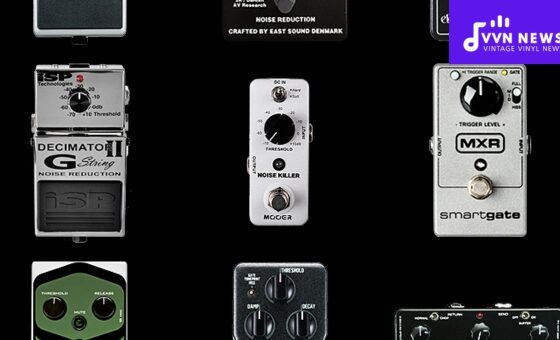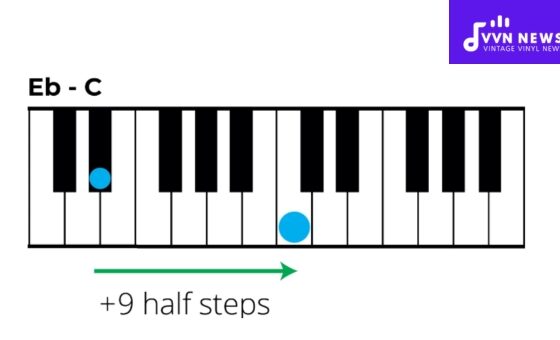Getting your work adequately recognized and compensated in music can feel like navigating a labyrinth.
The complexity heightens with understanding the role of Performance Rights Organizations (PROs), such as the American Society of Composers, Authors, and Publishers (ASCAP) and Broadcast Music Inc. (BMI). So ASCAP Vs BMI: Which PRO is right for you?
Now, if you are an emerging or established songwriter, composer, or music publisher, being a part of a PRO that fits your needs should be a top priority.
It’s not just about ensuring the legalities; It’s about understanding where you stand in this vast musical landscape and getting the maximum benefit from your artistry.
To help decide between ASCAP and BMI, I’ve compiled this guide that compares what each organization offers its members.
What are PROs, and Why Do You Need Them?
Performance Rights Organizations (PROs) have long existed to safeguard the rights of songwriters, composers, and music publishers.
They operate by licensing, monitoring, and collecting royalties on behalf of such creators when their works are publicly performed.
How Do PROs Work?
You may wonder how these organizations monitor every single public performance of your composition.
Well, that’s the beauty of their operation! When a song is played on platforms like radio stations, television shows, websites, or venues like bars and restaurants, PROs act.
They track these performances, organize the data, and then dispense ‘performance royalties’ payments to the rightful owners, including songwriters, composers, or music publishers.
PROs: Protectors of Musical Rights
PROs play a crucial role in protecting musical rights. Imagine you have written a revolutionary piece that gets played regularly at numerous public venues, but there’s no system to organize this information or process your deserved payout.
That’s why every time your song is played publicly and profits a business – whether it be a livelihood for a radio station or setting the mood in a café – you’re entitled to royalties; it’s your intellectual property at work! This equitable payment process is made possible by PROs.
Therefore, if you’re creating music, aligning with a PRO is more of a necessity than an option.
As much as it is about getting compensated for your hard work, it is also about respecting creativity and promoting fair play in the industry.
Also Read: B Flat Minor Pentatonic Scale [Create Emotive Music In Minutes]
ASCAP: The American Society of Composers, Authors, and Publishers
The American Society of Composers, Authors, and Publishers (ASCAP) is a heavyweight in PROs. Established in 1914, ASCAP is the first PRO to put down roots in the United States.
Over its century-long journey, not only has it paved the way for other similar organizations, but it also has grown into one of the world’s leading music copyright organizations.
History & Accomplishments
Founded by a group of visionary creatives, including Victor Herbert and John Philip Sousa, ASCAP’s mission has been to ensure songwriters’ rights are protected and they are duly paid for their creative work.
During its early years, ASCAP faced notable contention from businesses reluctant to pay royalties.
That did not deter it. Instead, it fought several legal battles for music creators’ rights.
Over the years, it has boasted many key wins that brought critical legislation to protect music copyrights and ensured equitable royalty distribution for its members.
In terms of numbers, too, the organization impresses with over 700,000 members, representing more than 11 million copyrighted works.
Per their 2019 fiscal report, they collected over $1.274 billion in revenue and distributed around $1.184 billion to its members.
Membership Benefits & Services
Joining ASCAP comes with several perks—admittedly, an exciting mix aimed at maximizing members’ benefits out of their affiliation.
- Licensing Expertise: With a century’s experience, ASCAP’s expertise in monitoring venues— large or small —and exacting royalties is indisputable.
- Royalty Payment: ASCAP ensures that members get compensated when performances occur on TV or radio anywhere in the world. They boast an extensive network of partnerships with foreign PROs.
- ASCAPEXPO: ASCAPEXPO is a prominent industry event that ASCAP hosts for networking amongst industry peers.
- Workshops & Showcases: These are tailored to provide opportunities for exposure among members.
- Discount& Benefits Program: This program includes a range of discounts on gear, health insurance, travel, and more.
Notable Artists
ASCAP’s extensive roster boasts the names of some legendary artists and renowned songwriters such as Paul McCartney, Stevie Wonder, Jay-Z, and Beyoncé.
Younger indie artists like Vampire Weekend have also benefited from this association.
More than just a business liaison, ASCAP fosters a close-knit community culture amongst its members.
In a nutshell, ASCAP’s legacy, combined with its commitment to nurturing creative talents, puts it in the front row of noteworthy PROs.
Also Read: B Minor Pentatonic Scale [Inject Your Music With Dramatic Flair]
BMI: Broadcast Music, Inc.
Founded in 1939, Broadcast Music, Inc. (BMI) is an American performing rights organization that oversees the public performance of songwriters’ music.
Responsible for the licensing and distributing royalties, BMI works on behalf of its members to ensure they receive suitable compensation.
Understanding BMI’s Role as a Performing Rights Organization
The primary role of BMI is to manage and protect the rights of songwriters and composers.
It licenses its music to thousands of businesses across the nation. Every time their work gets played, whether on radio or TV broadcasts, digital platforms, or even live at venues, it’s BMI’s job to keep track.
To generate revenues for its members, this PRO leverages blanket licenses that grant licensees (like radio stations, bars, or websites) unlimited access to its staggering repertoire – millions of musical works from multiple genres spanning countries worldwide.
In return for a fee from these establishments, BMI collects and distributes ‘performance royalties’ back to its associated songwriters, composers, or music publishers.
This systematic process helps creators continue doing what they love – creating more music!
Distinguishing Features of BMI Compared to Other PROs
Unlike ASCAP, which operates on a membership-based model requiring annual dues, joining BMI is free for songwriters and composers.
While both organizations pay out royalties quarterly, one distinguishing feature of BMI’s royalty calculation method involves taking into account instances where songs are performed more prominently or during peak listener times.
Additionally, BMI enjoys a broad sweep across various genres, including rock, pop, country, gospel, and Latin, – attracting an eclectic mix of artists.
Each year, it conducts around 50 songwriter workshops and seminars offering networking opportunities along with educational resources – this makes it stand out in its commitment to educating and engaging its members.
Also Read: C Sharp Major Pentatonic Scale [Crisp & Clear Tones For Your Music]
Success Stories within the BMI Network
From legendary artists like Taylor Swift and Nine Inch Nails to Oscar-winning composers like Rachel Portman, BMI members span the music spectrum. It has also been a nurturing ground for emerging talent.
For instance, rapper Post Malone’s meteoric rise was catalyzed by the support and recognition of his association with BMI.
They believe that while they are vested in protecting established musical figures, new talent must be lifted and helped shine, too.
Whether it’s through its comprehensive royalty distribution network or member-supportive platforms like workshops for professional development,
BMI cultivates a creative environment that enhances the careers of its members and encourages them to produce enriched sounds for music enthusiasts worldwide!
This makes it an appealing option when choosing a PRO that aligns best with your needs!
Differences Between ASCAP and BMI
When deciding whether to join ASCAP or BMI, it’s crucial to understand their differences – from membership requirements and fees to royalty distribution and additional benefits.
Membership Requirements and Eligibility
Both ASCAP and BMI are open to songwriters, composers, music publishers, and even students in all genres. However, their signup processes differ slightly.
ASCAP
For ASCAP, if you’re a songwriter or composer, there is a one-time, non-refundable application fee of $50.
Publishers need to pay a one-time fee of $150.
BMI
On the other hand, BMI membership is free for songwriters. Music publishers have also favored BMI due to its smaller application fee ($250). So, if the initial cost is a crucial factor for you, this may tilt the scales towards BMI.
Also Read: A Major Scale [The Key To Bright, Cheerful Musical Pieces]
Royalty Distribution and Payment Process
Both PROs use sophisticated tracking technologies and methodologies —including digital monitoring services— to detect when your music is performed publicly.
Although both organizations use similar data for distributions, their calculation methods vary, causing slight differences in royalty amounts.
ASCAP
ASCAP follows a ‘follow the dollar’ method where your royalties tie directly to the license fees paid by each music user (for example, Radio stations or restaurants).
If your song has been played in higher revenue-generating platforms or venues, you stand to earn more royalties. They distribute royalties quarterly.
BMI
On the other hand, BMI tends to use a “blanket license” approach, which may result in royalty distributions being spread out more evenly among different platforms or venues.
BMI also sends out payments quarterly but has other payment dates compared to ASCAP.
Membership Benefits and Services
Though both organizations offer a vast array of member privileges like discounts on gear, health services, etc., variations based on their partnerships can sway a musician from one side to the other.
ASCAP
ASCAP offers a range of discounts for music-related products, services, and conference attendances such as Apple products, Billboard Music Conference, Guild of Music Supervisors Membership, and more.
BMI
BMI provides similar benefits like discounted music industry conference rates, hotel and travel discounts, and access to health insurance.
Some unique advantages include their BMI Live program for live concert performance royalties and deals on music business legal services.
Each organization also hosts events, workshops, and showcases, giving ample networking opportunities to the members.
Whether you decide on ASCA or BMI ultimately depends on your career goals and preferences.
Studying both organizations closely will equip you with the necessary knowledge to make the best choice for your career.
Choosing the Right PRO for You: Factors to Consider
Deciding between ASCAP vs. BMI involves considering variables in the broader context of your career goals, preferred music genre, and target market.
Here are some factors to consider:
Genre Specificity
ASCAP and BMI cover a broad palette of genres; however, specific genres tend to be better represented by one or the other due to historical affiliations or existing membership bases.
- With its heritage in classical and theatre music, ASCAP continues to support these genres strongly. However, in recent years it has cultivated a diverse blend of artists spanning multiple categories like pop, rock, and hip-hop.
- BMI has historically leaned heavily towards radio-friendly popular music. This includes country, pop, and urban music. The deal gets sweeter if you’re into Latin music because BMI has a solid Latin repertoire.
Also Read: D Major: The Scales And Chords [Broaden Your Musical Vocabulary]
Target Market Opportunities
The potential exposure opportunities afforded by either PRO is another crucial factor:
- ASCAP stages multiple high-profile events throughout the year, exposing their members’ creations and providing an opportunity for networking with industry leaders.
- However, BMI offers expansive licensing agreements due to its deep connections within Hollywood and television production companies.
One might be more attractive if you’re targeting commercial airplay or cinema placements, depending on your specific market targets.
Personal Preferences
This encompasses everything from organizational culture to aligning with personal values and objectives as an artist:
- ASCAP operates on a membership model where you become a part owner. You get voting rights at board meetings, instilling a sense of belongingness and influence over the organization’s trajectory.
- BMI, while being a non-profit like ASCAP, adopts more of an ‘open-door policy.’ This means they are incredibly accepting and supportive, especially when welcoming creators from varying backgrounds and career stages.
Remember that aligning with the right PRO can prove instrumental in shaping your music career.
It’s about finding that synergy where your creativity meets the optimal route for recognition and compensation.
FAQs About ASCAP and BMI
Why do I need a Performing Rights Organization (PRO)?
As a music creator, a PRO helps collect and distribute royalties when your work is publicly performed.
Can I be a member of both ASCAP and BMI?
No, you need to choose only one PRO as an affiliate, either ASCAP or BMI.
Who can join ASCAP?
Composers, songwriters, lyricists, and music publishers can join ASCAP.
What are the benefits of joining BMI?
BMI offers its members workshops, seminars, networking events, and opportunities for live performances.
How much does it cost to join these PROs?
There is a one-time fee for joining either organization: $50 for ASCAP and $150 (or $250 for companies) for BMI.
Conclusion
Choosing between ASCAP and BMI can seem daunting, but understanding your requirements and aligning them with each organization’s offers makes the process more straightforward.
Consider factors like genre suitability, membership requirements, market opportunities, and personal preferences.
Remember, your choice should cater to your artistic goals and maximize your work’s benefits.
Both organizations hold their merit and have done a lot for the music community.
Either way, joining a PRO is essential in securing your rights as a creator. Strive to make an informed decision that best fits your journey in the music industry.







